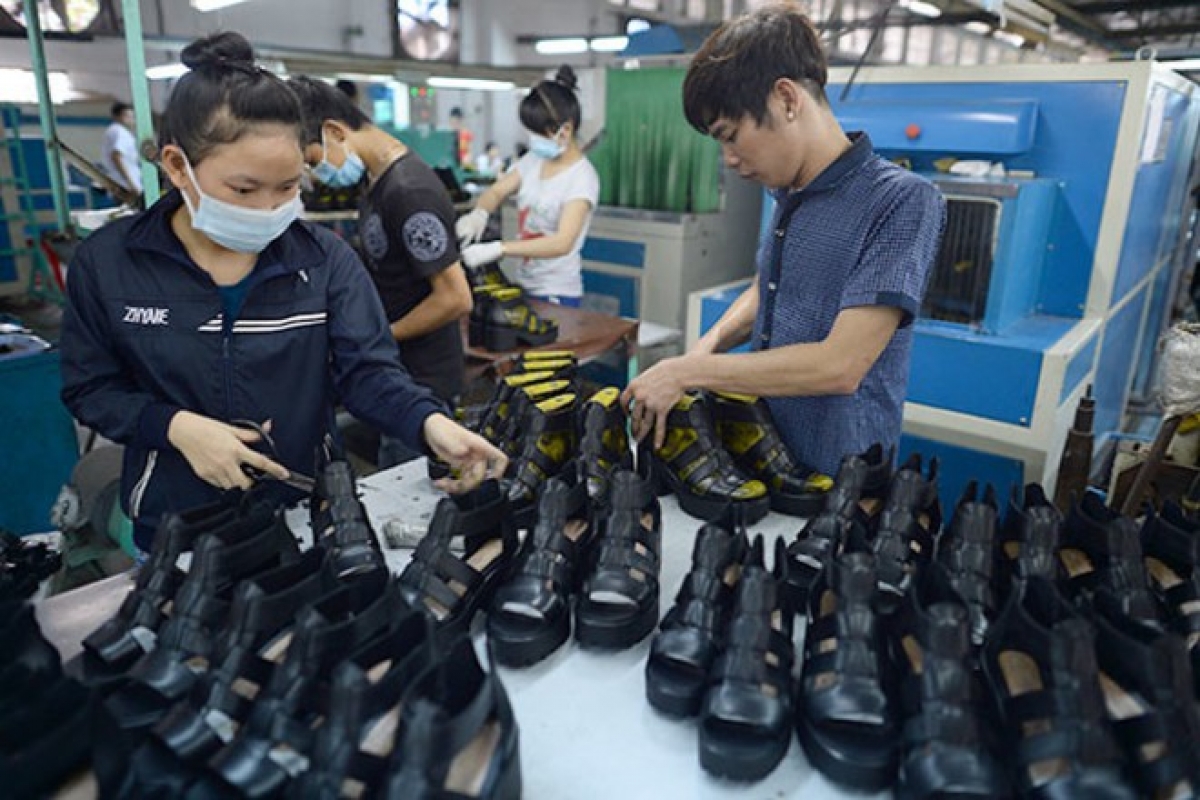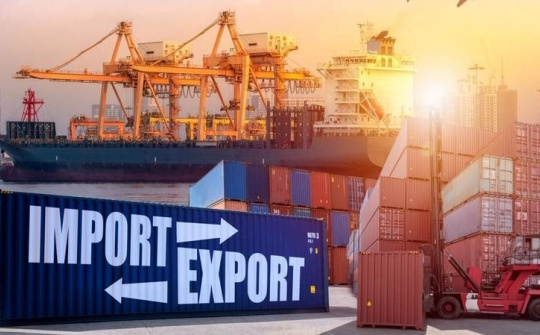
She noted that Vietnam has signed 16 trade agreements with large markets, and has a contingent of skilled workers with more than 30 years of experience in production of footwear for export.
Xuan said that last year, Vietnam earned nearly 24 billion USD from leather and footwear exports, down 15% year-on-year. However, it was still a satisfactory result amidst common difficulties of enterprises over the past time.
Vietnamese footwear and handbags are currently available in 150 markets, of which the US accounts for 35% of the market share, the EU 26%, and China 9%.
In 2023, while the main export markets reported decreases, exports to China tended to increase, she stated, adding that this market is expected to create growth potential for the industry in 2024.
One of the big challenges for Vietnam's leather and footwear industry is requirements of import markets regarding sustainable production, Xuan said, adding that domestic companies for a long time have voluntarily developed sustainable production models to meet customer requirements. However, this has become a mandatory requirement from countries, as a series of new policies will be issued in the near future.
For example, the EU market has introduced a series of new policies on ecological products, or expanded responsibility for manufacturers, and supply chain traceability. The policies require all countries exporting to the EU market to comply with, and this is a big challenge for manufacturers, including those from Vietnam.
If enterprises want to participate in the supply chain, there is no other way than to comply with customer regulations, Xuan said, adding that to comply with these regulations, Vietnamese businesses must significantly upgrade to strengthen their internal capabilities. The upgrading starts with technology and management, and focuses on training to improve skills for workers.
The Lefaso will act as a bridge to help businesses access financial resources to have capital for production and trade, and also assist businesses in their technological innovation efforts and help them access support from international organisations to improve management and technical skills to meet the growing requirements of export markets, affirmed Xuan.
VNA





